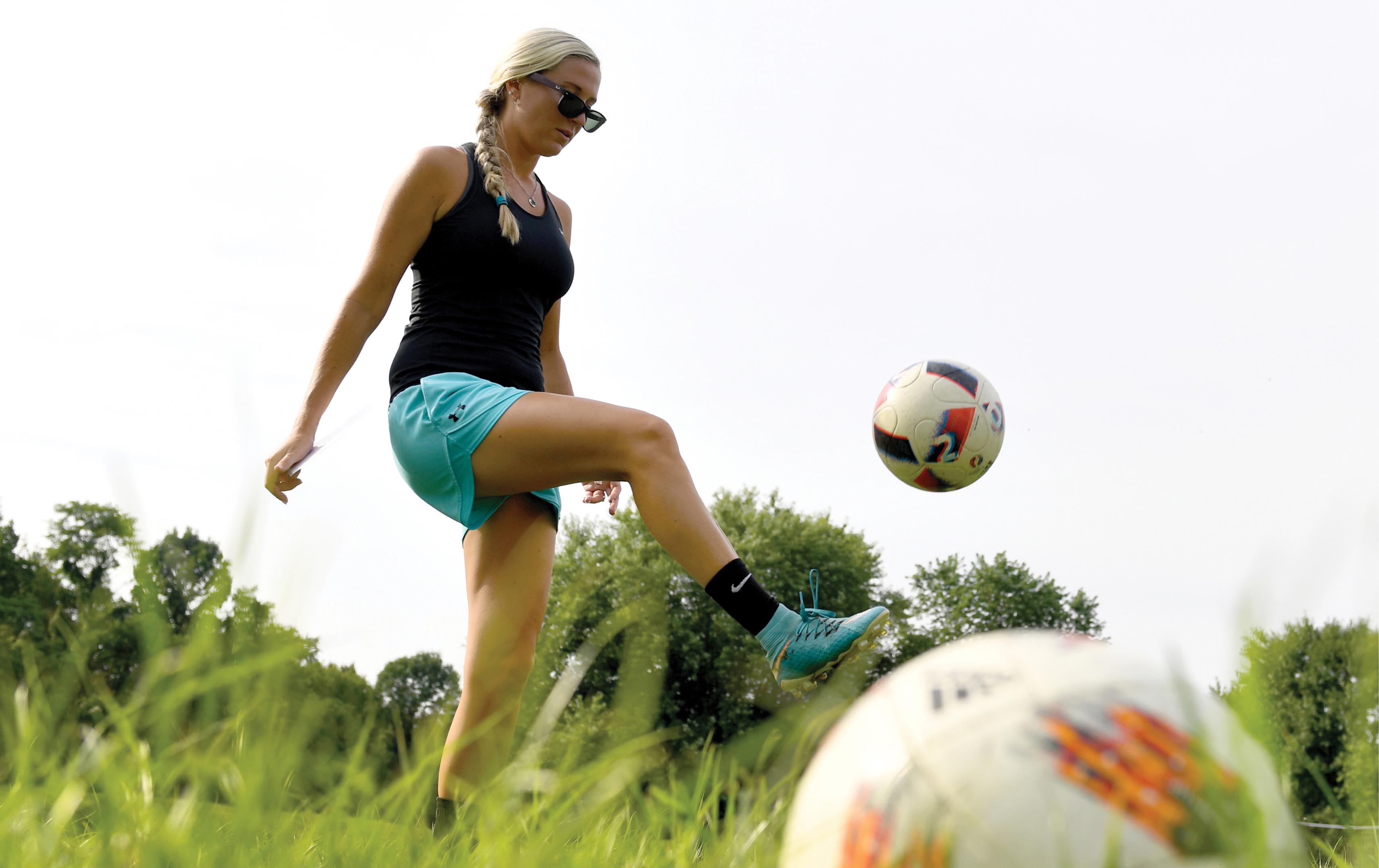BIG QUESTIONS
3 Consciousness



“The average person spends 6 years of their life dreaming.” (p. 107)
RISKY SPORTS: CONCUSSIONS IN STUDENT ATHLETES
Brittni Souder, a former college soccer star, spends her time helping young female players learn to play the game safely. Souder (see first photo) suffered at least a half dozen concussions while playing soccer during high school and college, and they have taken a toll on her mental abilities. For instance, she needs GPS to travel to familiar locations, she relies on her Apple Watch to remind her to eat, and she requires prescription sunglasses, even while indoors, because of problems with her vision (Stubbs, 2019).
Sports and other recreational pursuits with physical contact place people at risk of concussions. A concussion does not always lead to a loss of consciousness, but when people are knocked out, it is more likely that they have a concussion. Symptoms of concussion involve changes in the conscious experience of the world, including headaches, dizziness, mental confusion, difficulty concentrating, and light sensitivity (Chandran et al., 2020).
Until recently, most people did not worry about concussions among young people. However, we now know that concussions and their associated brain damage cause impairments that can linger for years. For affected individuals, such as Brittni Souder, everyday conscious experience of the world remains impaired. But what exactly is consciousness? How is it related to your experience of the world? Does it change with circumstances? What does it mean to be knocked unconscious? This chapter explores what consciousness means, how consciousness results from ongoing brain activity, and what happens when consciousness changes.